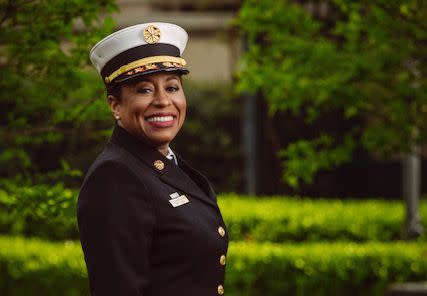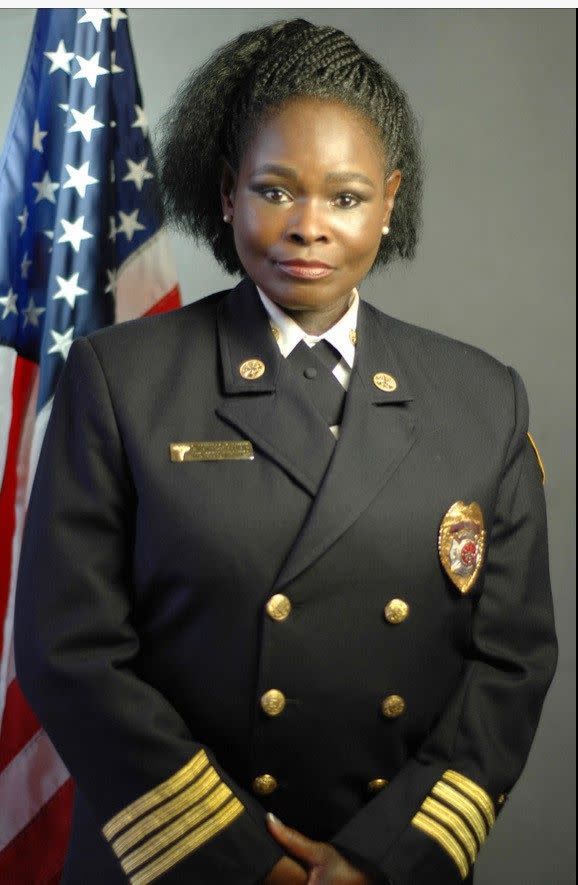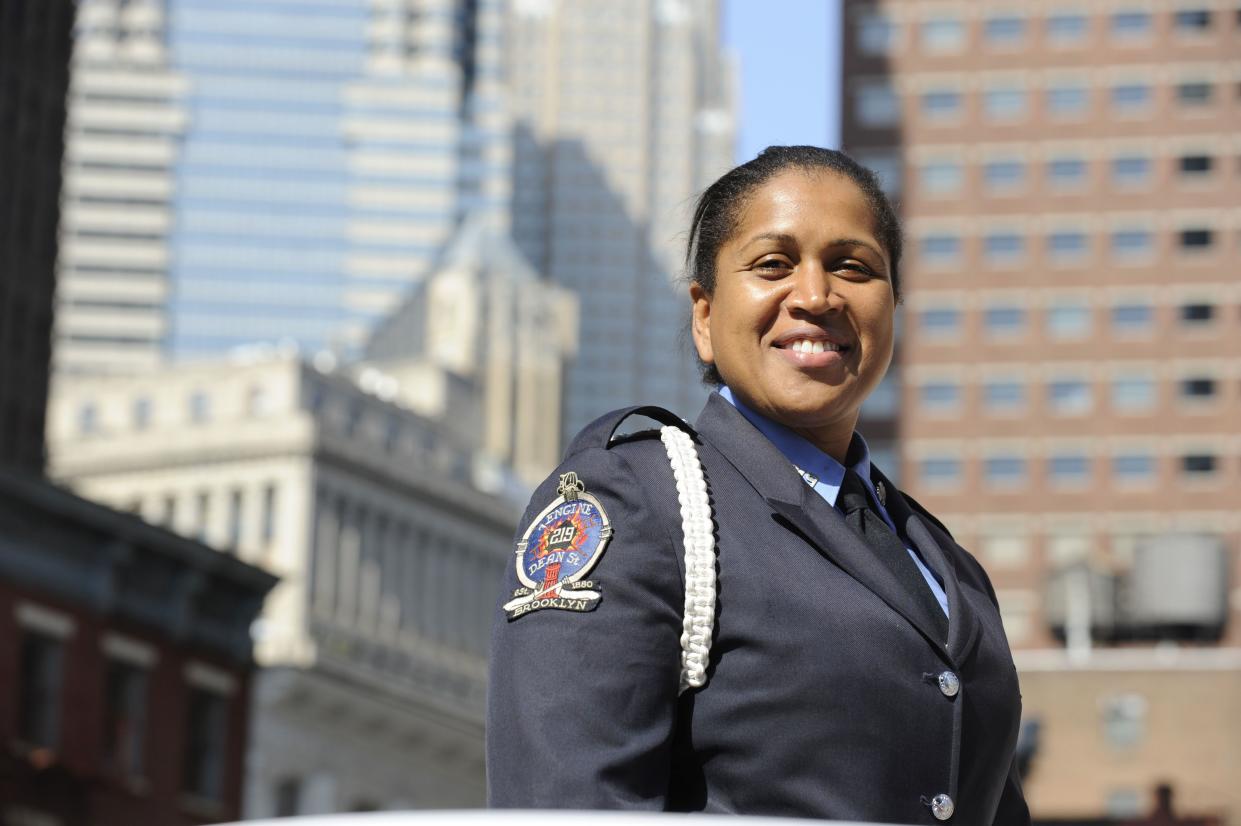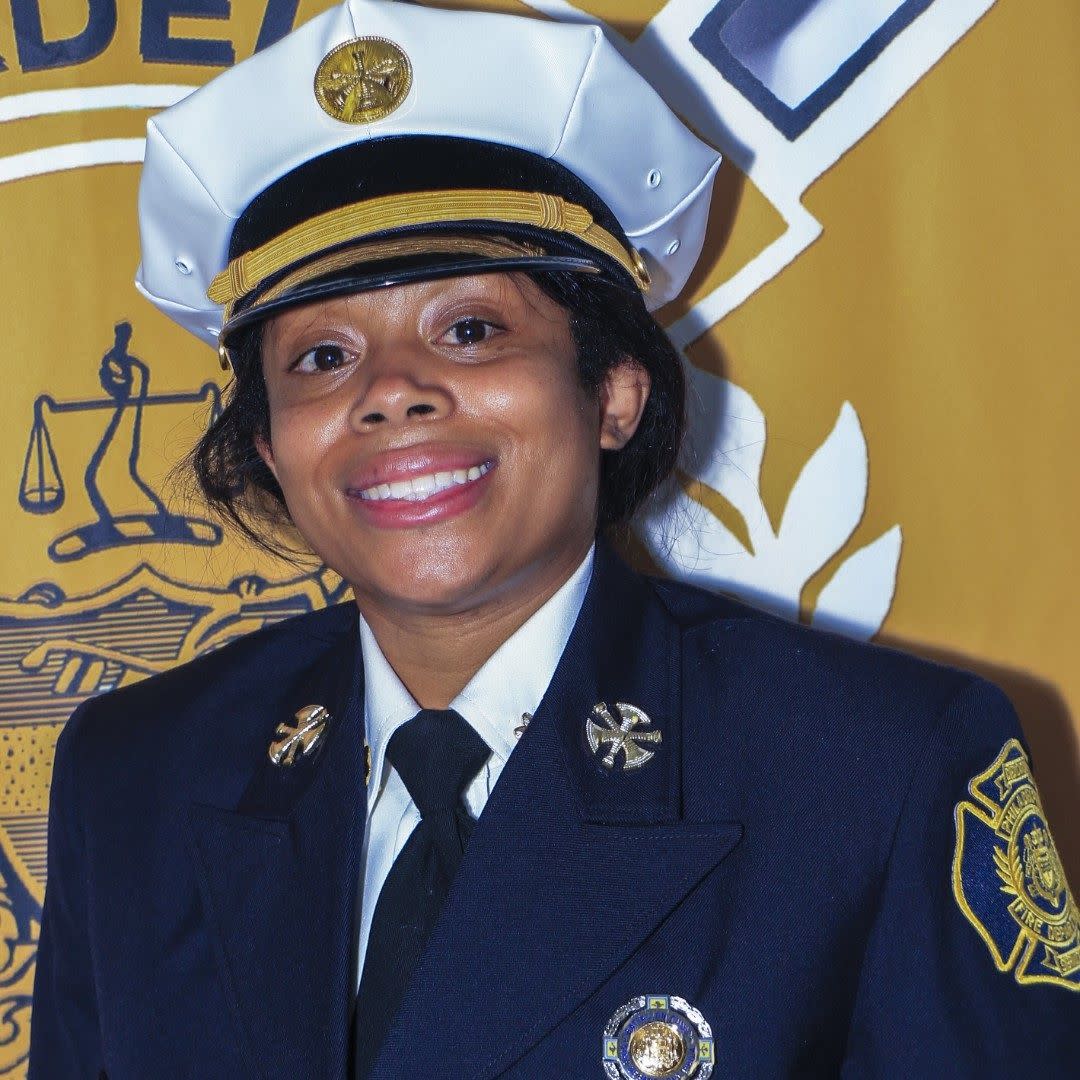Climbing the ladder of success remains a difficult chore for Black women firefighters
There was nothing subtle about the pushback when Toni Washington — a Black woman — landed her first job with the East Point Fire Department in 1995.
“It was in my face, a combination of both sex and race,” recalled Washington, now the fire chief for the city of Decatur, Ga. “There was no hiding how people felt. When we went into the firehouses, the men wouldn’t dare talk to us. How they felt, they were unashamed to show it. It was by any means necessary to push us out.”
Twenty-one years into the new millennium, Washington is now in her 12th year atop the department. But it’s lonely at the top of the ladder of success: She is one of just six active Black female fire chiefs nationwide, with six others in retirement.
The numbers are similarly daunting throughout the firefighting ranks: Barely 4% of the nation’s 300,000 smoke-eaters are female, with their colleagues comprised of about 78% non-Hispanic white males.

The numbers often add up to a lack of Black and woman applicants for the jobs filled for generations by white men, said Carrie Edward-Clemons, now in her sixth month as president of the International Association of Black Professional Firefighters.
“There’s various reasons people are not breaking down the door,” she said. “They view the fire department as in the past, a male-white dominated profession. A lot of people don’t want to take that on in their lives.”
The 53-year-old firefighter became the first woman to hold the IABPF position, the latest ground-breaking move in a 22-year career that started in the Flint, Mich., fire department — although she bemoans that things are not so different these days.
“It kind of went from where things were in your face to now, where they figure out a way to do it in secret or underground,” said Edward-Clemons, Flint’s first female deputy fire chief. “It’s a challenging part of this job ... It’s a struggle every day with attitudes and perceptions.”

FDNY veteran Regina Wilson became the first female head of the Black firefighters’ Vulcan Society in 2015 and just celebrated her 22nd anniversary on the job. Her new bosses took Wilson across the street from the firehouse to a local bar when she first arrived in 1999, unaware that she didn’t drink, smoke or eat meat.
“And I’m not a man,” added Wilson, 51. “This was foreign territory for all of them. They had to try and figure me out. Was I an angry black woman, finger-waving? Was I bougie? There’s never going to be 100% acceptance, some just don’t want you there. There are some who feel like you’re taking a spot they’re entitled to.”

Lisa Forrest, the first Black woman battalion chief in Philadelphia’s department, recalled the hostility that greeted her arrival on the job in 2004. The 39-year-old Forrest faced a third challenge in addition to her race and gender, standing just 4-foot-10 and weighing less than 100 pounds when she entered the fire academy.
She recalls the initial reaction to her arrival in the ranks of the City of Brotherly Love’s male firefighters: “Who is this girl, and where did she come from?”
Forrest, the mother of two, recalled the complaints from firefighter’s wives about a woman sleeping in the firehouse with their husbands and the cold shoulder treatment from their spouses in a department that remains 95% male.
“I got the dirty looks and some people didn’t talk to me,” she recalled. “Some people had a personal agenda: Here it is, you’ve got this woman on the job. But I was there to do a job, and everybody doesn’t love me.”

While she initially planned to spend five years with the Philly department while pursuing a nursing degree, Forrest instead found a home without giving an inch. Late last year, she was promoted to her current job.
“I don’t even know when the turning point was,” she recalled. “I can’t tell you. I was just being me, and I wasn’t waiting for their approval. I was finally told by some of the biggest male chauvinists , ‘I’d crawl down a hallway with you any day.’”
Washington was honored by legendary civil rights activist Rep. John Lewis (D-Ga.) in 2019, marking the 10-year anniversary of her rise to the top of the Decatur department. But she finds people still struggle with the idea of a woman in charge.
“People call and ask to speak with the fire chief,” she said. “I say, ‘Speaking.’ And they say, ‘No, I want to speak to THE fire chief.’
“That’s me.”
